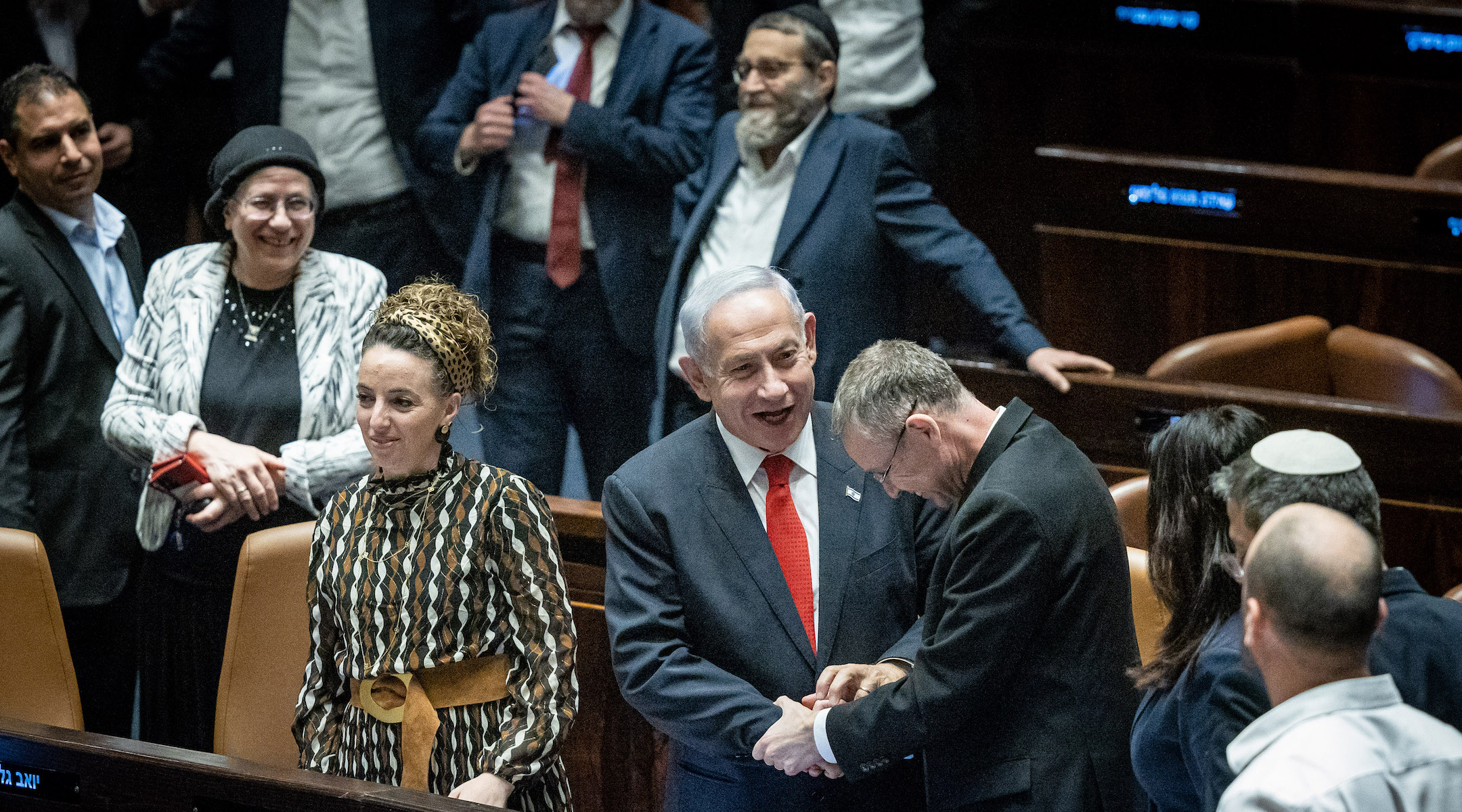(JTA) — The Israeli government’s controversial judicial reform plan cleared a major hurdle as its parliament, the Knesset, voted to advance a key piece of the plan.
The 63-47 vote took place early Tuesday morning, following a second week of mass protests outside the Knesset in Jerusalem. The bill was introduced by Prime Minister Benjamin Netanyahu’s governing coalition, which took office in December. It would give the Israeli governing coalition full control over the appointment of judges and would bar the Supreme Court from striking down basic laws, which are Israel’s closest parallel to a constitution.
The bill now returns to discussion in parliamentary committees ahead of two more votes in the Knesset, which generally occur close together and would pass the bill into law. In addition to pushing the bill forward, Tuesday’s vote was a signal that it has majority support in parliament. Members of the government have called for further limits on the court, including a measure that would significantly curtail the court’s ability to strike down laws.
The vote happened in the face of a series of mass protests against the reform in Israel, and despite the warnings of a chorus of world leaders, legal scholars and public intellectuals that it would harm Israel’s standing as a democracy. Israeli President Isaac Herzog called for compromise over the reform plan last week and said in a pained speech that he feared the battle over the legislation would lead to “constitutional and social collapse.” It is unclear whether dialogue over the bill will take place given Tuesday’s vote.
Recently, sounds of alarm have come from Tom Nides, the U.S. ambassador to Israel, who said on Saturday that the Israeli government should “pump the brakes” on the court reform. President Joe Biden has also criticized the plan. In addition, a group of 15 major North American Jewish philanthropists signed an open letter on Monday saying they were “deeply troubled by this attempt to curtail the independence of the judiciary.”
The bill gives members of the coalition a majority on the nine-seat panel that appoints judges to the Supreme Court. Unlike the U.S. government, in which separate elections for Senate and president allow for a potential check on the president’s power to appoint judges, the Israeli governing coalition is comprised of a majority of its legislature and would alone wield discretion over appointments.
Yair Lapid, the leader of the parliamentary opposition, tweeted, “Members of the coalition: History will judge you for tonight. For the damage to democracy, for the damage to the economy, for the damage to security, for the fact that you’re tearing the people of Israel to pieces and you just don’t care.”
In a speech on the Knesset floor, Netanyahu accused the opposition of going “off the rails” and criticized the protests. He defended the bill as the work of a democratically elected government.
“In a democracy, the people votes in elections, and representatives of the people vote here in the Knesset,” Netanyahu said. “That’s called democracy. The leaders of the protests, unfortunately, are trampling democracy. They don’t accept the outcome of the election. They don’t accept the decision of the majority.”
Finance Minister Bezalel Smotrich, head of the far-right Religious Zionism party and an ally of Netanyahu, tweeted a shorter message: “What you elect is what you get!”




